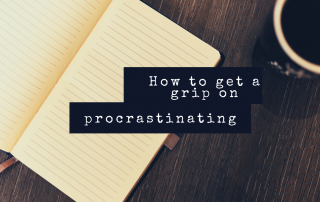 We can finally look forward to easing of tough Coronavirus restrictions after a long, hard Covid pandemic. We can now do things we took for granted before Pandemic. But the easing of the restrictions isn’t exciting for everyone – for those with social anxiety, life after lockdown can be a scary prospect.
We can finally look forward to easing of tough Coronavirus restrictions after a long, hard Covid pandemic. We can now do things we took for granted before Pandemic. But the easing of the restrictions isn’t exciting for everyone – for those with social anxiety, life after lockdown can be a scary prospect.
Social anxiety is a fear of social situations, that includes worrying about meeting strangers, how to act with groups of friends or family, work problems, ‘power’ syndrome and much more.
It can make everyday life extremely difficult for sufferers. When we add more than a year of isolation and social distancing to that, it can make people feel ‘disconnected’ and even completely ‘cut off’ from the real world.
Tips on how to cope with Anxiety after Lockdown:
Understanding Social Anxiety- FREE Workshop:
What can you do to help yourself if you suffer from Social Anxiety?
 Here are my 3 tips on how to ‘readjust’ to life after lockdown:
Here are my 3 tips on how to ‘readjust’ to life after lockdown:
1. Focus on the present, not on the future ‘what ifs’.
Worrying isn’t actually solving any problems – focus on what’s within your control only, right here, right now.
Try:
Set an appointment with yourself to WORRY. It may sound weird, but it WORKS. If your mind starts to wonder and worry, remind yourself you’ve got an appointment for worrying set. ALWAYS keep that appointment with yourself, even if by then you have nothing to worry about.
Help Us Share This Message
2. Recognise patterns of behaviour that lead to self-defeating thoughts. Are you constantly scanning for threats (danger – negative judgement)?
It takes a lot of energy to actually interact with people, without the added pressure of constantly thinking about what other people think of us.
Try:
Imagine you’re sitting on the train, watching the world go by. Now think of that countryside as your thoughts. You see them, you acknowledge they are there (you are not suppressing them), but you’re choosing not to give in to them or interact with them.
3. Turn the spotlight off you and on to others in social anxiety-provoking situations.
I call this ‘Focus Awareness’.
Focus your energy on being interested in the other person. Listen rather than hear.
Try:
Next time you’re facing a social situation, pay attention to where your focus is:
What percentage is inwards (in your head), on the environment (things and people around you), and on the task itself (being absorbed in conversation)?
*For professional Anxiety support (Cognitive Behavioural Psychotherapy & Life Coaching), please book a complimentary consultation:
Further articles you may like:
1606, 2023
708, 2022
1707, 2022
Anxiety And Procrastination At Work
Can Anxiety cause Procrastination? Absolutely. Anxiety and Low Mood can both result in Procrastination at work. In this article, I'm going to take a closer look at what Procrastination is, and how to help yourself if you struggle with Anxiety AND procrastination. Let's start with Procrastination: First of all, people mistake procrastination
2606, 2022
405, 2022
Assertiveness Mastery: 9 Effective Steps to Improve Assertiveness Skills and Boost Self-Confidence
In today's fast-paced world, mastering assertiveness skills has become an essential tool for personal and professional growth. It's not just about being confident; it's about communicating your needs and respecting others in a balanced and healthy way. I've recently launched a new book, 'Building Assertive Mindset: A Guide to
1204, 2022
 We can finally look forward to easing of tough Coronavirus restrictions after a long, hard Covid pandemic. We can now do things we took for granted before Pandemic. But the easing of the restrictions isn’t exciting for everyone – for those with social anxiety, life after lockdown can be a scary prospect.
We can finally look forward to easing of tough Coronavirus restrictions after a long, hard Covid pandemic. We can now do things we took for granted before Pandemic. But the easing of the restrictions isn’t exciting for everyone – for those with social anxiety, life after lockdown can be a scary prospect. Here are my 3 tips on how to ‘readjust’ to life after lockdown:
Here are my 3 tips on how to ‘readjust’ to life after lockdown:



